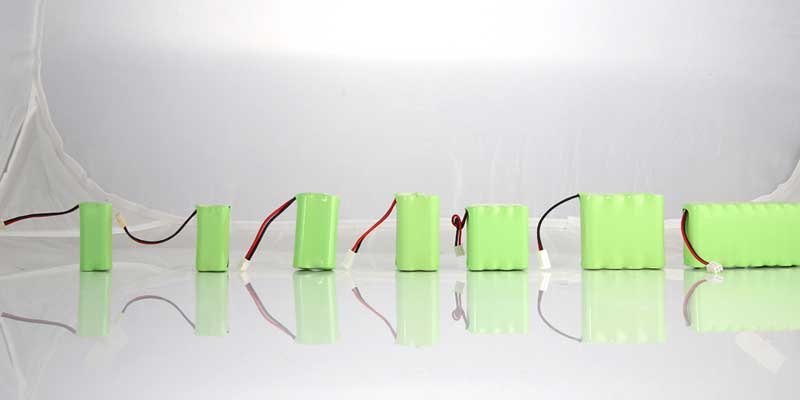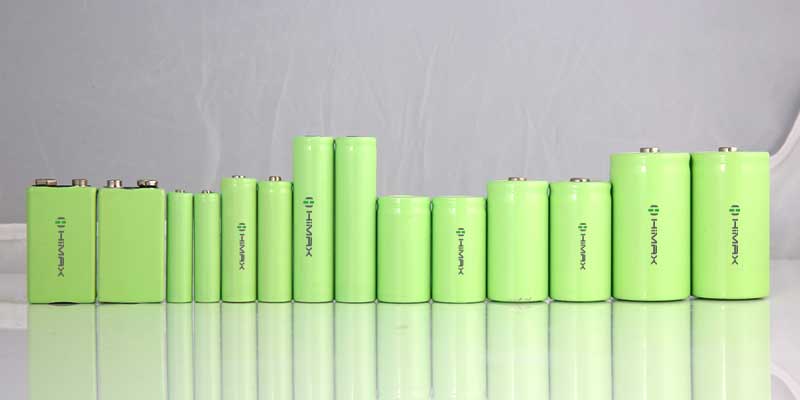Do NiMH Batteries Explode?

Compared to a lithium ion polymer (LiPo) battery, the nickel-metal hydride (NiMH) battery is a relatively safe battery as it is well designed in terms of safety performance due to its material and structure.
Generally, the NiMH rechargeable batteries rarely leak, unlike alkaline batteries. However, both alkaline and rechargeable batteries contain electrolytes, which could induce leakage when the batteries are used incorrectly.
By this logic, nickel-metal hydride batteries may explode. The principle of explosion is that the air pressure inside an object becomes too large, so the container cannot be contained. When the container breaks, it results in an explosion as the air pressure is released in an instant.
If a battery is used improperly, there can be an overcharge/discharge, short circuit, and even increase in internal voltage. To prevent the battery from exploding, a recoverable safety valve will open and reduce the internal pressure, thereby preventing an explosion.
What are NiMh batteries?
The nickel-metal hydride battery is mostly used in mobile-communication equipment, power tools, and medical equipment.

NiMH batteries are divided into high-voltage and low-voltage batteries. The high-voltage NiMH battery was first developed by M.Klein and J.F. Stockel in the United States in the early 1970s. Since then, there has been a tendency to replace nickel-cadmium with nickel-metal hydride batteries.
The positive electrode active material of Ni-MH battery is Ni (OH) 2 (called NiO electrode), the negative electrode active material is metal hydride, also called hydrogen storage alloy (the electrode is called hydrogen storage electrode), and the electrolyte is 6 mol/L potassium hydroxide solution.
The batteries are produced by different methods according to how they will be used. Different methods include the sintering, pulping, foam-nickel, fiber-nickel, and infiltration process.
Many batteries use the slurry-pulled negative electrode and the foamed nickel positive electrode to form the battery. The charge-discharge chemical reactions are as follows:
Positive electrode: Ni (OH) 2 + OH- = NiOOH + H2O + e-
Negative electrode: M + H2O + e- = MHab + OH-
Total reaction: Ni (OH) 2 + M = NiOOH + MH
Note:
- M: hydrogen alloy;
- Hab: hydrogen adsorption; the process from left to right is the charging process; the process from right to left is the discharging process.
Features of NiMh batteries
Low-voltage nickel-metal hydride batteries have the following characteristics:
The voltage is 1.2 to 1.3V, which is equivalent to that of cadmium nickel batteries. The energy density is high, which is also more than 1.5 times that of cadmium nickel batteries.
They can be charged and discharged quickly, and they have good low-temperature performance. They are sealable and have strong resistance to overcharge and discharge. There is no dendrite formation, which prevents short circuiting. Overall, low-voltage NIMH batteries are safe and reliable.
High-voltage nickel-metal hydride batteries have the following characteristics:
The batteries have better over-discharge and overcharge protection, can withstand higher charge-discharge rate and also does not have dendrite formation. The mass specific capacity is 60Ah/kg, which is 5 times that of nickel-cadmium batteries.
They also have a long cycle life (up to a 1000 cycles) and excellent low-temperature performance. They are fully sealed and require less maintenance, and the capacity does not change significantly even at -10℃.
Preventing explosions from Ni-MH batteries
Below are just a couple of preventative measures to prevent NiMH batteries from exploding.
Avoid overcharging during use
Users should avoid overcharging because it is easy to cause the positive and negative electrodes in the battery to swell. This will cause the active material to fall off, the separator and the conductive network to be damaged, and the battery ohmic (Ω) polarization to become larger.
Storage of NiMH batteries
The nickel-metal hydride battery should be fully charged. If the battery is stored for a long period of time, the function of the hydrogen storage alloy of the battery negative electrode weakens, which affects the battery life.
Learn more about Himax NiMH batteries
Himax’s nickel-metal hydride batteries are the world ’s leading level, offers up to 2 times the C-rate of same size standard Nickel Cadmium Batteries. Due to their higher discharge rate and energy density features, users can use on more powerful equipments and applications.
Himax offers are variety of NiMH Battery Cells with wide temperature ranges. These Cells provide new electrode development which allows for a wide temperature range and long life. The cells have good availability with a wide cell selection that includes stable and compatible sizes.


